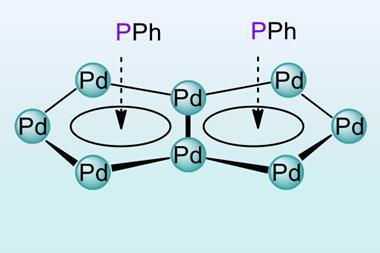Steven Rawlings, co-author of maths books for chemists, was accidentally killed by his friend and colleague, the coroner has ruled
The death earlier this year of astrophysicist Steven Rawlings after being held in a headlock by a friend has been found to have been accidental. Rawlings and his colleague Devinderjit Sivia, who accidentally killed his friend in a scuffle, had collaborated on mathematics books for chemists.
An inquest concluded that Rawlings, a professor at Oxford University, who had been suffering from mental problems, died of a cardiac arrest after an unprovoked attack on Sivia. After being attacked, Sivia restrained Rawlings to protect himself, inadvertently cutting off Rawling’s air supply, which, combined with Rawlings’ elevated adrenaline levels, led to a heart attack, the coroner stated.
Sivia had initially been arrested on suspicion of murder after Rawlings’s death on 11 January, but the Crown Prosecution Service later dropped the case. Sivia and Rawlings first met in the 1980s as undergraduates at St John’s College in Cambridge. They co-wrote the books Foundations of Science Mathematics and the companion volume, Foundations of Science Mathematics: Worked Problems.
At the inquest into the death, his wife, Linda Rawlings, said he had suffered mental health problems after taking the antimalarial drug mefloquine 15 years ago during a holiday in Kenya. In April 2011, Rawlings suffered a complete nervous breakdown and spent time in an Oxford hospital. However, she told the inquest that she felt that his breakdown in 2011 was unrelated to his problems with the antimalarial.
It is increasingly clear that thousands or tens of thousands of former users could be suffering the toxic effects of the drug and not even know it
The week before his death, Rawlings had been confused, agitated and paranoid, friends testified. At the time of his death Linda Rawlings was in the US and Sivia agreed to let Steven Rawlings stay with him. Before the attack, Rawlings told Sivia: ‘I am going to kill you.’
Neuropsychiatric disorders have been linked to mefloquine, which was developed in the 1970s as a synthetic analogue of quinine at the US Walter Reed Army Institute of Research and later manufactured by Roche under the trade name Lariam. News reports have explored possible mefloquine side-effects, such depression, as well as suicidal and homicidal impulses.
Public health researcher and epidemiologist Remington Nevin tells Chemistry World: ‘Mefloquine intoxication is associated with a risk of chronic psychiatric symptoms, but these do not fit a specific psychiatric or neurologic diagnosis. As a result, the effects of the drug are frequently misdiagnosed or mistaken for other conditions.’
Nevin, who currently studies the neurotoxicity of mefloquine at the department of mental health, Johns Hopkins Bloomberg School of Public Health in Baltimore, Maryland, says that the US Food and Drug Administration has convened a panel of neurotoxicologists and experts to reevaluate the safety of the drug. ‘It is increasingly clear that thousands or tens of thousands of former users could be suffering the toxic effects of the drug and not even know it,’ he adds.












No comments yet